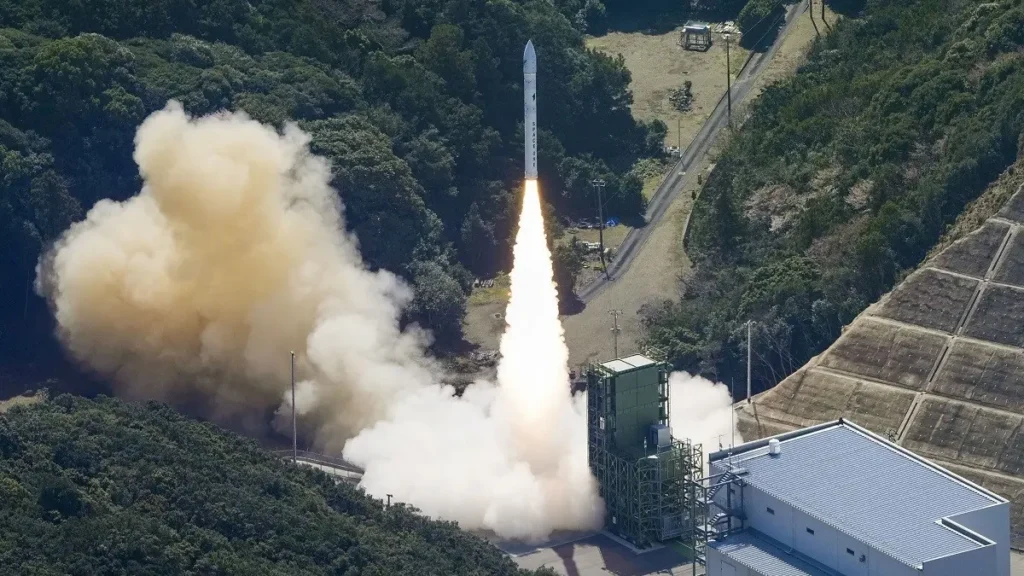Japan’s Space One faced another setback on Wednesday as its Kairos small rocket was terminated shortly after liftoff, marking the second failed attempt in nine months to become the country’s first private company to deliver a satellite to space.
This failure adds to a series of challenges for Japan’s rocket development program, even as the government seeks to expand its domestic space industry. Japan aims to achieve 30 rocket launches annually by the early 2030s, positioning itself as Asia’s hub for space transportation in a projected $52 billion industry.
The second flight of the Kairos rocket, which lasted only about 10 minutes, was terminated because “the achievement of its mission would be difficult,” according to Space One in an email to reporters.
Live footage from the Wakayama prefecture government showed the 18-meter (59-foot) solid-propellant rocket launching from Spaceport Kii in western Japan at 11:00 AM, but losing stability in its trajectory soon after liftoff.
The rocket carried five small satellites, including one from the Taiwan Space Agency, intended for a sun-synchronous orbit about 500 kilometers above Earth’s surface.
Space One is investigating the incident and plans to hold a press conference at 2:30 PM local time.
Founded in 2018, Space One is a joint venture between Canon Electronics, IHI’s aerospace division, construction company Shimizu, and a bank. The company’s goal is to launch 20 small rockets annually by 2029 to meet rising satellite launch demand.
Space One’s first attempt with Kairos in March ended in failure when the rocket exploded five seconds after launch. The explosion was triggered by incorrect flight settings, which activated the rocket’s autonomous self-destruct system, though no hardware issues were found.
A shortage of domestic launch options has led Japanese startups, including radar satellite maker iQPS and debris management firm Astroscale, to rely on SpaceX’s rideshare missions or small rocket provider Rocket Lab.
Other recent setbacks in Japan’s space industry include the Japan Aerospace Exploration Agency’s (JAXA) postponement of the Epsilon S solid-fuel rocket’s debut flight after its engine combustion test failed for a second time last month.
JAXA’s larger liquid-fueled H3 rocket also faced failure during its inaugural launch in March 2023, though it has since succeeded in three flights this year, securing orders from clients like French satellite company Eutelsat.
In 2019, Interstellar Technologies became the first Japanese firm to send a rocket into space without a satellite payload, but its orbital launcher, Zero, is still under development.


